As Colorectal Cancer Awareness Month is observed in March, we’d like to share some facts that everyone should know for health.
According to an estimation by International Agency for Research of Cancer (IARC), almost 2 million cases of colorectal cancer (CRC) were diagnosed. CRC now is the third most common cancer worldwide and the second most common cause of cancer death, leading to almost 1 million deaths per year. Though effective screening techniques could reduce the number of deaths from this disease, the silent symptoms of CRC make it hardly diagnosed.
 Who are affected by colorectal cancer?
Who are affected by colorectal cancer?
Both men and women face 4-5% lifetime risk of developing CRC, but male may get colorectal cancer at an earlier age than women. The risk of CRC increases with age, and people with a family history of colorectal cancer have 2-5 times more risk. Some people may inherit colon cancer syndromes that increase their risk of developing the disease.
What symptoms does CRC lead to?
Most symptoms of CRC are silent, and they become noticeable as the disease develops. It may take several years to grow up to colorectal cancer, and people with I stage CRC still have about 95% chance to survive. In the CRC I stage, mild bleeding in digestive tract usually occurs but blood in stool is usually ignored or misunderstood as hemorrhoids. In later stages, bleeding becomes severe and patients will suffer anemia, consequent unreasonable tiredness, weight loss and abdominal pain, which are probably the only noticeable symptoms of CRC. Most CRC cases are found to be in stage II, III or IV, with chance of survival lowering to about 75%, 40% and 5% respectively.
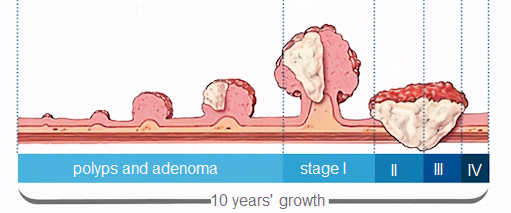 What should I do to prevent CRC?
What should I do to prevent CRC?
Colorectal cancer is one of the most preventable types of cancer. It takes an estimated 10 years for certain polyps turn into cancers, and finding these pre-cancerous polyps can prevent the colon cancer. There are several types of tests offered for CRC screening, such as:
—Flexible sigmoidoscopy
—Colonoscopy
—Radiological imaging
—Stool testing (gFOBT, FIT, iFOB)
As it is almost impossible to notice CRC from physical symptoms, regular screening tests are strongly recommended to prevent and control it as early as possible. The non-intrusive and cheap iFOB test can sensitively detect bleeding in your digestive tract and abnormal test result warns the possibility of intestinal disease, creating chance for timely detection of CRC and early treatment.
Wondfo One Step Fecal Occult Blood (FOB) Test (Colloidal Gold) allows either rapid self-testing at home or rapid measurement by professionals, requiring no auxiliary machine for testing. All-in-one sampler provided in the kit allows easy operation and results can be released in 10 minutes. With high sensitivity (96.1%) and specificity (95.5%), it can satisfy the needs for CBC screening. Meanwhile, Wondfo offers a solution for quantitative measurement by professionals—
Finecare™ iFOB rapid quantitative test with FIA Meters (FS-113, FS-114, FS-205). With room-temperature stable reagents, rapid results are ready in only 5 minutes.
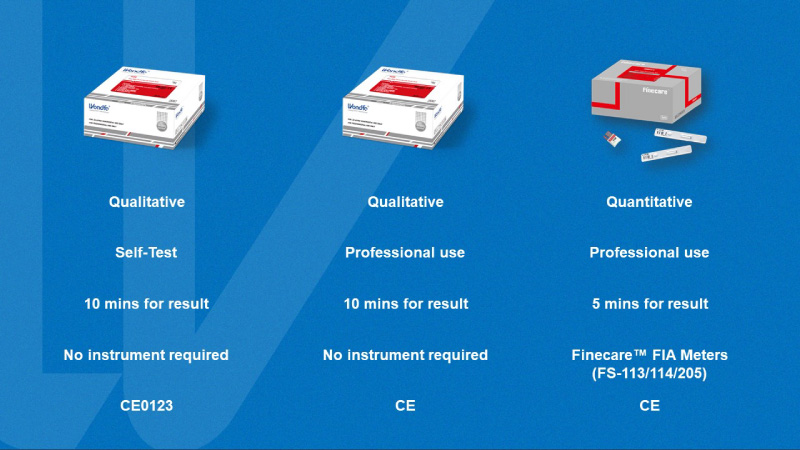 What can I do in my daily life to lower the risk?
What can I do in my daily life to lower the risk?
Many habits may help lower the risk, such as taking a healthy diet with vegetables, fruits, and whole grain fiber; quit drinking and smoking and take regular physical exercises so as to keep a normal body weight; check you stool and if there is a change in bowel habits, talk to a doctor. It is suggested that adults age 45 to 75 should be screened for colorectal cancer.

Since the founding in 1992, Wondfo has been sparing no efforts in providing products and services of cutting-edge technology. Wondfo has been and will be committed to provide the public with accurate, easy-operating tests for self-test as well as professional measurement.
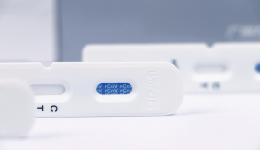 The first developed technology platform with various application scenarios, including infectious disease, fertility, DOA, etc.
The first developed technology platform with various application scenarios, including infectious disease, fertility, DOA, etc.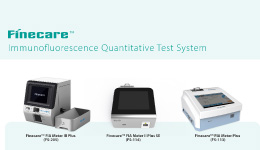 50+ kinds of reagents and five high-performance devices, focusing on detecting cardiovascular disease, inflammation, kidney injury, sex hormones, thyroid function, diabetes, tumor, and others.
50+ kinds of reagents and five high-performance devices, focusing on detecting cardiovascular disease, inflammation, kidney injury, sex hormones, thyroid function, diabetes, tumor, and others.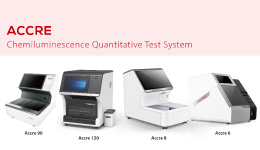 Single-dose Chemiluminescense Immunoassay Platform
Single-dose Chemiluminescense Immunoassay Platform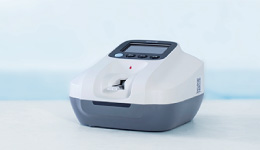 Wondfo optical blood coagulation analyzer is the first one in the world that can test PT, APTT, TT, FIB, and ACT simultaneously.
Wondfo optical blood coagulation analyzer is the first one in the world that can test PT, APTT, TT, FIB, and ACT simultaneously.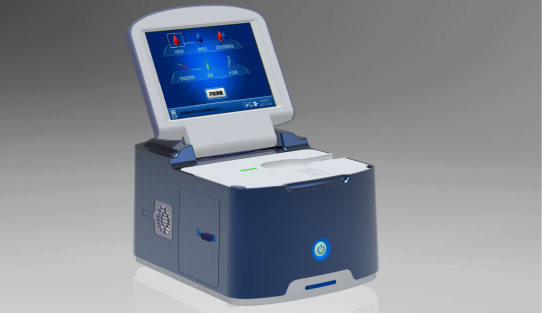 Our Blood Gas Analyzer BGA-102 can produce the result in 30s. Its advantages of portability, easy operation, durability, and high performance make it ideal for clinics, laboratories, and hospitals.
Our Blood Gas Analyzer BGA-102 can produce the result in 30s. Its advantages of portability, easy operation, durability, and high performance make it ideal for clinics, laboratories, and hospitals.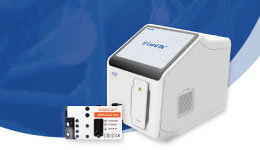 Ready-to-use lyophilized RT-PCR Reagent;
Ready-to-use lyophilized RT-PCR Reagent;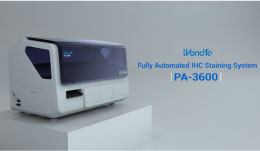 Wondfo PA-3600 IHC Staining System
Wondfo PA-3600 IHC Staining System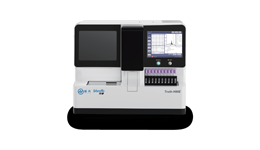 The Wondfo Truth-H80E HPLC Hemoglobin Analyzer is a high-performance diagnostic device designed for rapid and precise measurement of glycosylated hemoglobin (HbA1c)—the gold standard for diabetes diagnosis.It support the standard mode and variant mode and provide the result within 60-90seconds.
The Wondfo Truth-H80E HPLC Hemoglobin Analyzer is a high-performance diagnostic device designed for rapid and precise measurement of glycosylated hemoglobin (HbA1c)—the gold standard for diabetes diagnosis.It support the standard mode and variant mode and provide the result within 60-90seconds. This year, the summit will place a special focus on collaboration across different fields to explore the application of POCT and optimize clinical pathways. In the meantime, drive innovation by adoption of new technologies and biomarkers.
This year, the summit will place a special focus on collaboration across different fields to explore the application of POCT and optimize clinical pathways. In the meantime, drive innovation by adoption of new technologies and biomarkers.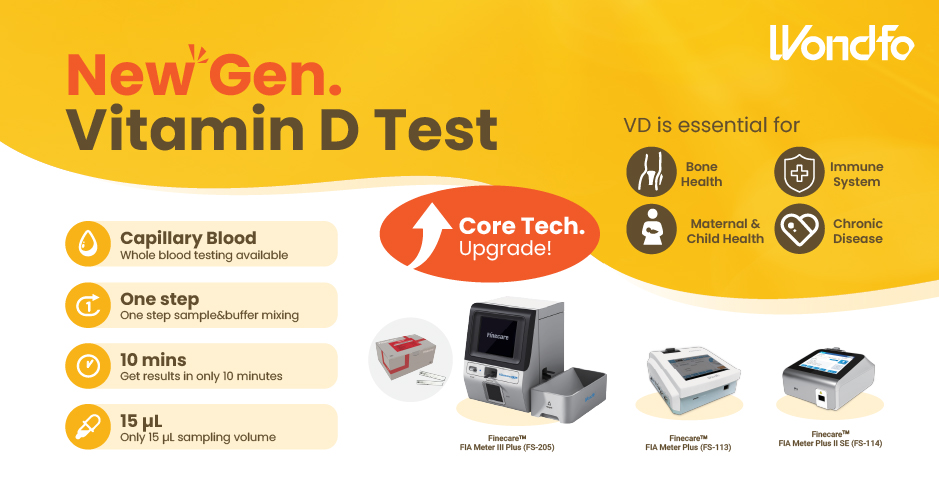 Finecare™ Vitamin D, from complexity to simplicity
Finecare™ Vitamin D, from complexity to simplicity Building A World Free from Antibitoic Overuse
Building A World Free from Antibitoic Overuse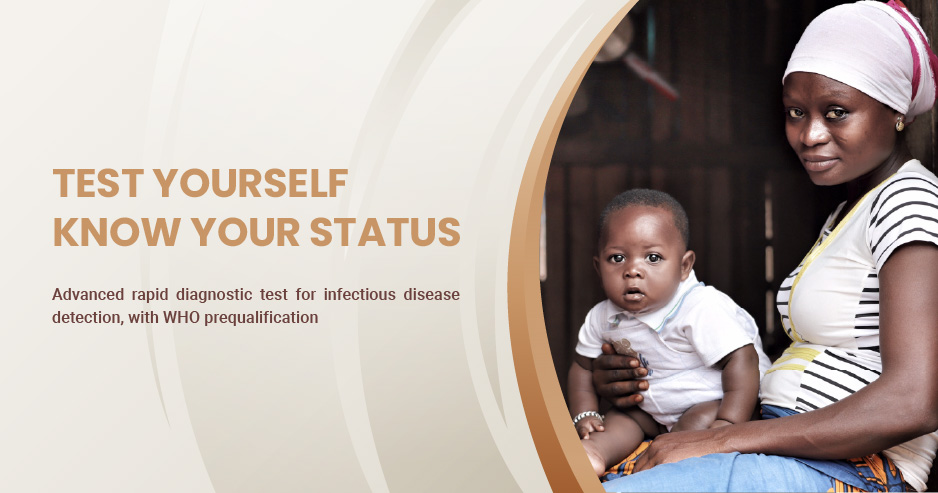 Advanced rapid diagnostic test with WHO prequalification for infectious disease
Advanced rapid diagnostic test with WHO prequalification for infectious disease The Future Intelligent Medical Assistant to Healthcare
The Future Intelligent Medical Assistant to Healthcare Fight against the pandemic through continuous innovation
Fight against the pandemic through continuous innovation







































